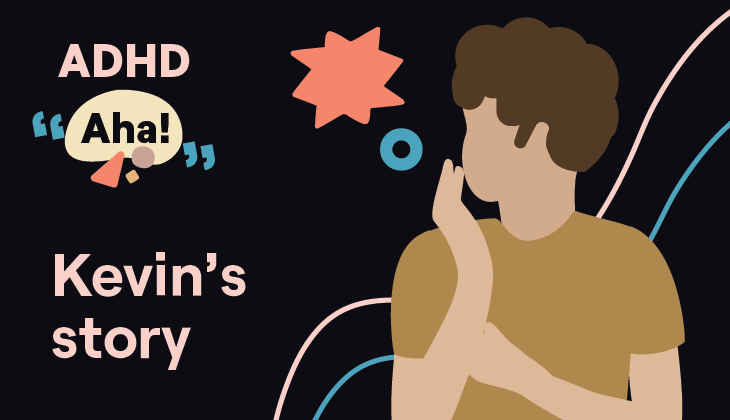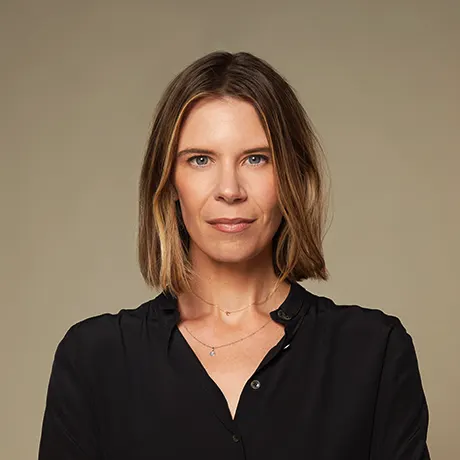Stay in the know
All our latest podcasts delivered right to your inbox.
Kevin Lam’s parents never told him he was diagnosed with ADHD as a child. And they might have never told him, if it weren’t for something Kevin, now 23, noticed at a recent family gathering.
Kevin is just starting to learn about ADHD and his symptoms: Hyperactivity, fidgeting, and trouble focusing. And he has some “aha” moments throughout the interview: Why was he always the class clown in school? Does his ADHD really create challenges for him? He also talks about ADHD stigma in his Mexican family, and how it contributed to his diagnosis being hidden from him.
Related resources
Episode transcript
Kevin: She told my aunt, "Hey, your daughter seems very energetic. Is she always like this?" And she was like, "Yeah, she actually has ADHD. And I used to have her medicated, but I don't like the way it was making her feel, so I took her off of it." And then my mom, casually, out of nowhere, was just like, "Oh, Kevin was supposed to be on meds, too, when he was a kid."
And so I just turned to her and I was like, "What?" And she was like, "Yeah, you have ADHD, same as her. You were very much like her when you were younger."
Laura: From the Understood Podcast Network, this is "ADHD Aha!" a podcast where people share the moment when it finally clicked that they or someone they know has ADHD. My name is Laura Key. I'm the editorial director here at Understood. And as someone who's had my own "ADHD aha" moment, I'll be your host.
I'm here today with Kevin Lam. Kevin is a 23-year-old general contractor who lives in South Central Los Angeles. Hi, Kevin.
Kevin: Hello. Thank you for having me. South Central in the house!
Laura: Love the energy.
Kevin: Thank you.
Laura: I have to hear it again. I have to hear you talk about when you found out that you had ADHD.
Kevin: I have this cousin who was 9 years old, 8 years old, and I had never met her in my life. And my mom had just recently came into contact with her sister, and we went to City Walk, Universal City Walk, here in Los Angeles. And my mom made the comment where she told my aunt, "Hey, your daughter seems very energetic. Is she always like this?" And she was like, "Yeah, she is always like this. She actually has ADHD. And I used to have her medicated, but I don't like the way it was making her feel, so I took her off of it." And I was like, "Oh, interesting," in my head. I just happened to be there for the conversation, so I was like, "Oh, interesting, cool." And now, Mom, I don't know, we're just like, it's not a big deal, she was like, "Oh, yeah, Kevin too. He was supposed to be on that." And I looked at her and I was like, "What? What? How are you going to drop that so casually on me? I can just say, 'Oh yeah, Kevin was supposed to be medicated too, but I never did it.'"
Laura: How old were you at this time?
Kevin: This was, uh, this year, actually, 2021, 2021.
Laura: And you're 23 years old?
Kevin: Yeah, 23, and —
Laura: So, your mom basically told you out of the blue that as a child, you had been diagnosed with ADHD?
Kevin: Yeah, yeah. Because she didn't think it was a big deal. And that's just one thing that's very common in my culture, which is Mexican culture. That's why she casually just dropped it on me like it was not a big deal.
Laura: OK, this is so many questions. That's wild. That must have been a wild experience for you. It's wild for me just listening to it. How did you feel in that moment? Were you mad? Were you sad? Were you confused? Give me your emotions.
Kevin: Oh, no, I was like surprised and not necessarily shocked to the point where I was angry or anything like that. It's more like, "Wow, that makes sense." It's like it clicked. And I was like, "Ah, that explains a lot. That explains a lot in my life."
Laura: Yeah, I was just going to ask you, had you ever had any inkling prior to that, that you had ADHD?
Kevin: I've had several, I've had several instances where people have told me, like, "Why do you have so much energy? Why are you like this? Why are you running around? It's 2 a.m. How are you still awake? Why this, why that?" And I have a mentor who I work with who used to be a psychiatrist or a psychologist. I forget what it was. And he said I showed symptoms of someone with ADHD a while back. I disregarded it. I disregarded it because I didn't think much of it. Not until my mom told me, of course.
Laura: So, have you talked to your mom more about this? I understand she didn't want you to use ADHD medication, but did she seek out any other supports for you when you were growing up?
Kevin: No. None at all. Because, like I said, in our culture it's not a very big deal, according to them. But nowadays that's changing, so, it's good, because we have services for people who just suffer from mental illness. Not that I think that I'm suffering from mental illness personally; I enjoy my ADHD. It gives me all this energy that I don't know what to do with. So it keeps me busy.
Laura: How did you do in school and with friends and in life, growing up? Do you feel like you could have used some support to cope with ADHD?
Kevin: No, I don't think I could have used any support. I personally believe that my ADHD is just a part of me and whatever I went through as a kid with ADHD is all worth it to become the person I am today. And, um — I got lost. I got lost.
Laura: That's OK. ADHD is also part of my identity. It's shaped me into who I am today. But I also know that there are challenges that it causes in my life that, you know, I have to find ways to cope with them. Do you feel like ADHD causes challenges for you? You don't have to think back to when you were a kid, but even now?
Kevin: Definitely. I'm a hands-on learner. I was never someone who learns by watching someone else. And especially in school, if I had those teachers that were trying to write something on the board or had me reading from a textbook, it didn't work for me at all. I lose my focus very quick. The only way I could actually learn in school was if they were to write something on the board and ask for volunteers to come solve a problem or something. That's when I'd step up and participate in the activity, because that's how things stick with me. Even now, as an adult, when I work my construction job, sometimes they're trying to teach me things like trying to learn how to frame or something. And I forget immediately after they show me, they try to show me how they're doing it. They're like, "OK, all you got to do is this, that that that." And I'm like, "OK, I got it. I got it." I get confident. I'm like, "OK, I got it. I got it." And then I'm on there and I'm like, "Wait a minute. Was it like this? Damn." I need someone to watch me do it and tell me, "No, no, that's not what I did." "Oh, OK. So you did this." "Yeah. That's exactly what I did." "OK, OK. I'm getting there, I'm getting there."
Laura: Do you feel like you have trouble holding information in your working memory? Basically, like, when someone tells you something, you have to hold on to it for a little bit, and so that you can execute something.
Kevin: Yes. I have a tendency to say, "Huh?" after somebody tells me something because I'm giving my brain time to catch up to what they just said. Like when asking your question, I'd be like, "I'm sorry, what was that?" And then while you're repeating it, although I've already heard it, I'm thinking about what I'm going to say. I'm just buying time for myself.
Laura: Mm-hm. That is a small way of coping. Yeah. Good for you. And in a small way, like, you're advocating for yourself by saying, "Can you repeat that?"
Kevin: Yeah.
Laura: The other option is you just keep going and you don't actually, you know, answer the question that was posed.
Kevin: You just laugh and you pretend that you heard what they said. Like, "Yeah, yeah."
Laura: Do you do that a lot?
Kevin: Sometimes. Unfortunately, yeah, sometimes. But my girlfriend calls me out on it all the time.
Laura: It can be pretty endearing too. You seem like you're someone — you have a great sense of humor, right? You have a pretty energetic personality. Do you think that any of that is related to your ADHD?
Kevin: Of course! No one else can match me, when it comes to energy — in my family, at the very least, nobody else can really match me in energy. It takes a lot for me to get really exhausted, so I find myself doing more things, even after I've done something, like I just can't stay still. I can get released from work early and I get home, I cannot sit in my bed or sit watching TV for too long, because I'll get pretty sad. I feel like I'm not doing anything with my life. And so it gets me moving. It gets me to do exercise or start writing or mostly go out with friends and just catch up with them, even if it's just to eat or something.
Laura: It sounds like you get restless.
Kevin: Yeah, I get really restless. My girlfriend, she constantly pats me like, "Hey, you're kicking." My leg is just shaking and I don't realize it. And she stops it. And then a few moments later, it starts again, and I don't realize it.
Laura: You said earlier that your mom and your dad were like, "It's just not a big deal," right? Do you think it's a big deal to have ADHD?
Kevin: To a certain extent, I think it's a big deal. I think it's a big deal when it comes to learning because most often than not, growing up, my parents would yell at me or get angry with me for not retaining information that they give me. And there was just nothing I can do about it, and I couldn't explain myself. If I tried to tell them that, "I'm sorry, I just forgot," they'd get angry. It's really hard when it comes to that, because, you know, you can't explain yourself, and they wouldn't understand even if you told them. They'd just brush it off and be, "I know what your problem is that you don't pay attention. That's your problem right there." "And that's exactly what I'm telling you. I can't pay attention. I'm trying to, really."
Laura: Well, it's interesting because they knew that you had ADHD. How about now, as an adult, now that you yourself have now connected the dots and you know that you have ADHD and your mom confirmed that you got diagnosed with ADHD, if you have those kinds of conversations with your parents, do you ever say now, like, "Mom, I have ADHD."
Kevin: No, not really. It's not something that comes up a lot, not anymore, because I don't live with her. So when I do visit her, we don't talk about it. But my dad, on the other hand, has begun to acknowledge it. Because I work with him sometimes and he tells me something, like I said, I forget it immediately. He makes fun of it, but in a nice way. We, in the Hispanic culture, have a bully culture, where we clown on each other, but it's with love. He'd be telling me things like, "Why don't you pay attention, with your attention-deficit-having ass?"
Laura: Hey, that's some progress though, right? I mean, that's how you communicate is through humor and through that kind of clowning around. So, I think that that's cool.
Kevin: Yeah. Like I said, I don't feel like it's, uh, I never felt like I was suffering. I enjoy it, on the other hand. It just makes me stick out more than most people. And many people have told me that they like that about me. They like my energy. I get that a lot. Everywhere I go, "Oh, your energy," or "You're such a happy guy," or "You're such a nice person." Not that that correlates the niceness and, you know, the energetic, but people see that as a part of me. And when they describe me to others, it's one of the first things they say. "Oh, it's a very outgoing dude who can't stay still."
Laura: Yeah. I mean, depending on your experience, I think that it can correlate. I mean, I didn't get diagnosed until I was an adult. But looking back, I can remember I was pretty popular, and a lot of it was me kind of bouncing around or maybe kind of covering up the things I was struggling with and just being like, "I'm going to go have a conversation. I'm going to go have some fun." You know? It's great to be social.
Kevin: Yeah. I was very much like that in high school too. And that was one of the problems the teacher had because I would finish my work, I would begin talking with my classmates, and it didn't matter where she put me, where he put me, I would talk to anybody, even if I had never, ever talked to them in my entire life. They could sit me in the back of the class, away from everybody, and the nearest person, I would just be like, "Hey, what's the answer for this?
I got you on these answers. What's up?" And we'd just become friends like that. There was nowhere you could place me where I wouldn't fit in. I'm that malleable jigsaw piece that fits anywhere.
Laura: So, would you describe yourself when you were growing up in school as a class clown?
Kevin: Oh yeah, definitely. I even got it in the yearbook too. Two times.
Laura: Really?
Kevin: Yeah. I was in the yearbook as "class clown" like two years in a row. And I was just very social. I played sports, and I also was part of the band, yeah.
Laura: Oh, cool. What instrument?
Kevin: Well, I played the guitar, the bass, the drums, and the piano. So I was all around. There was this one time where the band performed during our halftime in our football, at a football game. And I joined the band in full football gear, playing my bass.
Laura: That is so cool. That's so much fun. Wow, boundless energy.
Kevin: Anywhere I went, really, I just have a good time anywhere.
Laura: I bet people love to be around you then.
Kevin: Some people. You know, it also gets me in trouble. My ADHD brain can get me into trouble sometimes because my mouth races at 100 miles per hour, while my brain is at 10. And I end up saying things that I don't necessarily think, you know, could offend someone or hurt someone. Um, disregard others accidentally without really taking into consideration what they're telling me. So it's not all fun and games when it comes to ADHD, it's also a problem with keeping communications with people. Yeah, I've gotten in trouble plenty of times because I run my mouth, and then, "Did you hear what you just told me?" "Yeah, yeah?" "You told me this." "I didn't say that," but I did.
Laura: It can be more challenging for people with ADHD to like, take that split second to think about what they're going to do or say before they act, and with that comes impulsivity or maybe saying things not in a mean way, not maliciously, but saying things that you maybe shouldn't be saying or oversharing, that kind of thing. Does that resonate?
Kevin: Maybe not on the oversharing part. OK. Maybe yeah, a little bit, actually now that I think about it. Let me go back to it. Yeah, you're right. Little bit like that.
Laura: So, remind me, what do you do for work?
Kevin: I do construction and handyman work, which is anything from plumbing, electricity, anything that you may need around the house.
Laura: Do you like your work?
Kevin: No. Yes and no, yes and no. I'll say yes and no, because I'm learning skills that I'm going to apply later on in my life, once I have my own home and I can save that money, and that's the bright side to that. It's just not something I enjoy. I hate math, and most times you're with a measuring tape, adding things or subtracting things. And that's just not for me. I don't like the technical aspect of this. I like the building and all that, but figuring out measurements and all that, it's not for me. I'm very slow for that too.
Just yesterday I had a run-in with my uncle because he was trying to explain something to me regarding numbers with a measuring tape. And I was like, "OK, but I do it this way. And this way works for me." He's, "I know, but you're doing it slower." "Yeah, because if I try it your way, I'm going to do it wrong." It's better slow and correctly than doing it fast and wrong, or else I'm just going to be wasting my time because I'm going to have to do it again and again.
Laura: That's actually a great coping mechanism, as well, to know that you need to slow down to do something right.
Kevin: That's actually a skill I acquired last year where I just told myself I was going to take my time. If they're going to get angry regardless, I might as well let them get angry for me taking it slow rather than me messing it up.
Laura: So, yeah, that seems wise.
Kevin: Yeah, the outcome is going to be the same at the end. You're still going to get angry. So I might as well do it right.
Laura: How did you get into this line of work?
Kevin: Uh, it's been in the family for a long time. I'm a writer and an actor. So, when you're chasing a career doing that, you need as much flexibility as you can but you also need to pay the bills. So I'm blessed with that because I know a lot of people in the industry where they can barely make the time; they've got to choose between paying the bills or chasing their career.
Laura: I'm thinking about you in this role and the role that you're in right now as a contractor and all of the movements, right, all of the action that's involved in that. Do you feel like your ADHD makes you well suited to it?
Kevin: Depending on what we're doing on the day, because there are days where we might just have to build a foundation for a home, which means digging for the majority of the day, which is what I'm good at. I'm good at all that heavy stuff. I love it. I love the exercise.
But when you're getting to the technical aspect of figuring out lengths of cables or something or wood? No, definitely not for me. I'd write down the measurements. OK. Oh, yeah, that's right.
Laura: What is it about writing that draws you in?
Kevin: I have an active brain. I just don't know what to do with it. Even if there are ideas that come into my head for a brief second, I need to put them somewhere so I can see, "OK, I don't know why I would write that, but cool. I guess it works. Yeah. I'll figure it out." And it's just a way to get my creative juices flowing, too, to exhaust my brain, because most often than not, I get really exhausted writing, staying up late, letting this story flow from my brain into the computer. And I get a really good night's sleep. When I'm in my mode, nothing can distract me. You can't call me, I'll throw my phone away because I'm just in my mode. Don't distract me. This is me right now. It's always been like that. I'm either too focused on one thing or I try to focus on several things and it just doesn't work out.
Laura: Hyperfocus can be related to ADHD too. Did you know that?
Kevin: No, I didn't know that.
Laura: I think some people would describe it as one of the cooler symptoms of ADHD, because ADHD can make it really hard to focus on things that you're not interested in, right? So you get super distracted if you're like doing your measurements, for example, that you're not interested in. But if you're doing something that you're really passionate about and really driven to do, you can get so in the zone that it can make it hard to shift your focus away from it. You can leverage that, you know.
Kevin: Mm-hm. That's actually — you, you explained a lot of things to me just now. Yeah. You just made me realize a whole bunch of things.
Laura: Are you distracted right now? And I say this just so, in case anybody listening is hearing sounds, and it's totally fine, Kevin, because I'm shaking my legs right now as I'm interviewing, but Kevin's kind of moving around in his chair, kind of fiddling with things a little bit. Are you distracted right now or no?
Kevin: My cousin has this stress ball, and it's one of those squishy ones, and it was on the floor. I just went for it. I was like, let me pick it up.
Laura: Ahh, see, you are coping in ways left and right you don't even realize it, Kevin.
Kevin: Really?
Laura: Yeah. That's a fidget, that's a sensory tool. It can be really helpful for people with ADHD. I use them. You said that you kind of, you can keep yourself focused when you can kind of transport that energy into another object in a way.
Kevin: I didn't know that. Before coming into this interview, actually, I was going to bring the dog in so I could have him on my lap just to distract myself.
Laura: I would have no objection to that. The only reason I don't have my dog in here is because she's really loud.
Kevin: But yes, to answer your question, yes, I'm a little fidgety. I'm not necessarily distracted because I am listening to what you're saying, but I am looking around everywhere just to see other things. It's something that my girlfriend tells me, too, because we're long-distance. She's in the Netherlands right now; she's Dutch. And we FaceTime a lot. And she's always telling me, "What are you doing?" I'm like, "Oh, I'm, I was looking at the TV a little bit." "Why don't you pay attention to me?" "I know, I'm trying to, I'm trying to, relax, relax, relax. I'm trying to, I'm trying to." She's getting used to my bully culture as well. She's met my family, and she knows how we work. And so she makes fun of me sometimes.
Laura: Hey, it sounds like she's fitting in. Good for her.
Kevin: Yeah, she's great. She's great. She's actually one of the people that started to push me to, to realize that I have this mental — that I have ADHD. She's a very strong advocate for mental health. And she actually did the research for me when I told her that my mom told me I had ADHD. I'd never thought about doing any research. I was like, "Oh, I have ADHD? Eh, whatever." I was doing fine my entire life with it. Nothing's going to change.
Laura: I've noticed something as I've been talking with you, Kevin, and it's that I hear you using the term "mental illness." And even before you said "mental," and then you stopped, and then you corrected yourself and you said, "ADHD." Nothing you're saying is inaccurate. Technically, yes, ADHD is classified as a diagnosis as a mental illness. But that term carries a lot of stigma and weight, right?
Kevin: Yeah. Which is why I'm trying to find the actual word to use because it's not an, like I said, I don't feel like it's an illness at all. That's a part of me, and I'm happy to have had it; it makes me stand out, like I said. It's that gray spot in between illness and condition, or whatever you want to call it. I just don't know the word for it.
Laura: And listen, you call it whatever works for you, you know, it's how you identify. The way I like to think about it is, ADHD is, truly, it's your brain is wired slightly differently than other people's, which makes it hard to sometimes regulate your behavior or your impulses, your focus, etc. It's nothing that is your fault, number one, and I would like to think it's nothing to be ashamed of.
Kevin: I'm not ashamed. I agree with you. I'm not ashamed at all.
Laura: Yeah. There are challenges related to ADHD, like controlling your impulses, self-control, but also the strengths and the cool things that can be related to ADHD. Like, look at how that made you so social, you know, there's excitement about you. I'm excited talking to you. You're fun to talk to, you know?
Kevin: Thank you.
Laura: Yeah. And you know, that's not 100 percent related to ADHD, but it's related to your experience with ADHD.
Kevin: Yeah. I've had more good experiences than bad when it comes to having this and just being myself.
Laura: I have one last question for you. Say you have kids and you discover that your child has ADHD. Your child gets evaluated and gets diagnosed. Are you going to tell your child?
Kevin: No. No.
Laura: No?
Kevin: I'm going to let them figure it out for themselves.
Laura: Why do you say that?
Kevin: It's funner. I don't know. I guess I just have to be in the moment to see if I would or not. If the child expresses having a problem with themselves, if they were to tell me, like, they're really concerned about why they're like this, of course I would tell them. I'd tell them what we are, what we have. But I didn't find out until now. And I like to think I turned out fine so far, so far. I've been fine.
Laura: I think you turned out just fine. Your child reaches out to you and says that they're struggling and then you share, then that's a great answer. And here you are on a podcast, sharing your experience with ADHD that other people will listen to and will learn from. And maybe it won't be your kids, maybe not, but other people.
Kevin: But if this helps out somebody, you're not alone — we're all hyperactive here, and it's good, it's not bad. Don't let anybody tell you that it's bad. And if they tell you it's bad, make it good. I don't know. I don't know if — is optimism a side effect of this?
Laura: So, actually, some experts would talk about over-optimism as being related, not a symptom, but sometimes, maybe a result of having ADHD, right? Not thinking everything through, not planning ahead.
Kevin: I tend to be very, very optimistic, and my girlfriend can be pessimistic sometimes, and she overthinks things. And I'm over here like, "Eh, we'll be fine, don't worry. Whatever happens, we're still going to be fine. All right? It's not a big deal. Relax, relax. Let's watch some TV."
Laura: There's nothing wrong with that. Kevin, it has been so much fun to talk with you today. You have such great energy. I love your perspective on life. Thanks so much for being here.
Kevin: Thank you very much, and thank you for having me. I mean, I didn't realize the time flew by. It was fun.
Laura: You've been listening to "ADHD Aha!" from the Understood Podcast Network. You can listen and subscribe to "ADHD Aha!" on Apple, Spotify, or anywhere you get your podcasts. And if you like what you heard today, tell someone about the show. We rely on listeners like you to reach and support more people. And if you want to share your own "aha" moment, email us at ADHDAha@understood.org. I'd love to hear from you. You can go to u.org/ADHDAha to find details on each episode and related resources. That's the letter U, as in Understood, dot O R G, slash ADHD Aha.
Understood is a nonprofit and social impact organization. We have no affiliation with pharmaceutical companies. Learn more at understood.org/mission. "ADHD Aha!" is produced by Jessamine Molli. Say hi, Jessamine.
Jessamine: Hi, everyone.
Laura: Justin D. Wright created our music. Seth Melnick and Briana Berry are our production directors. Scott Cocchiere is our creative director. And I'm your host, Laura Key, editorial director at Understood. Thanks so much for listening.
Host
Latest episodes
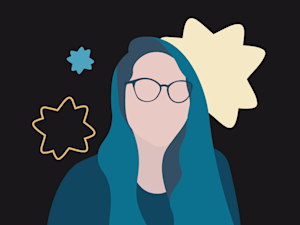
April 16, 2024
ADHD coach Jaye Lin was a gifted kid with undiagnosed ADHD. Now, she’s building communities and helping others cope with ADHD burnout.
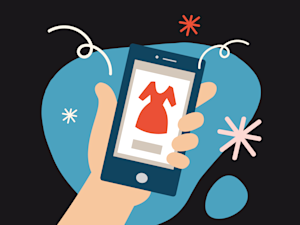
April 2, 2024
Writer Paulette Perhach had money coming in but struggled to keep it in her bank account. An ADHD diagnosis brought her struggles into perspective.
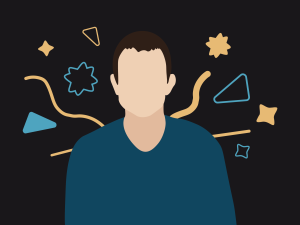
March 19, 2024
Eye to Eye founder David Flink is fighting the “just try harder” myth surrounding ADHD, dyslexia, and other learning and thinking differences.
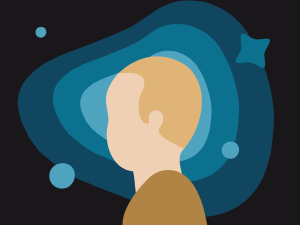
March 5, 2024
Peter Jones used to feel better saying he had a hearing problem rather than considering ADHD. Now, he knows he has ADHD and isn't afraid to say it.
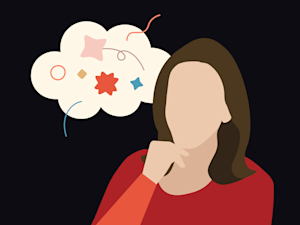
February 20, 2024
Before her ADHD diagnosis, ADHD coach Emily Weinberg thought she was just lazy. But in reality she was stuck in “analysis paralysis.”
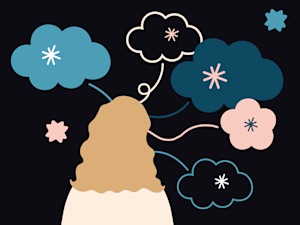
Carol Blumenstein was called an unteachable student. Now, she knows she has ADHD and dyslexia, and supports her five kids who learn differently, too.

January 23, 2024
Executive coach, actor, and former criminal defense attorney Ernest Anemone shares his ADHD story — and why he questions the term “attention deficit.”
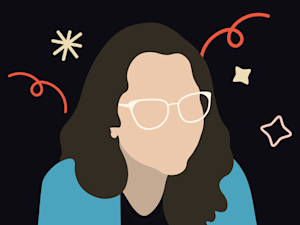
January 9, 2024
ADHD and post-traumatic stress disorder (PTSD) symptoms can look similar. And they can morph into what Hannah calls “a trauma ball of blame.”
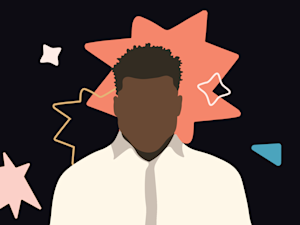
December 26, 2023
Livingston Steele was diagnosed with ADHD about a year into working at Understood.org. His experience and work have given him immense empathy for people with ADHD.
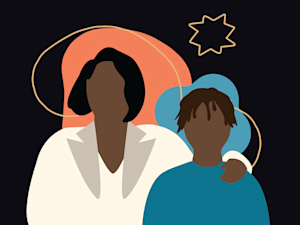
December 12, 2023
Wendy Zanders is a decluttering coach with ADHD. Find out how she got into organizing, and get a few tips for yourself.
